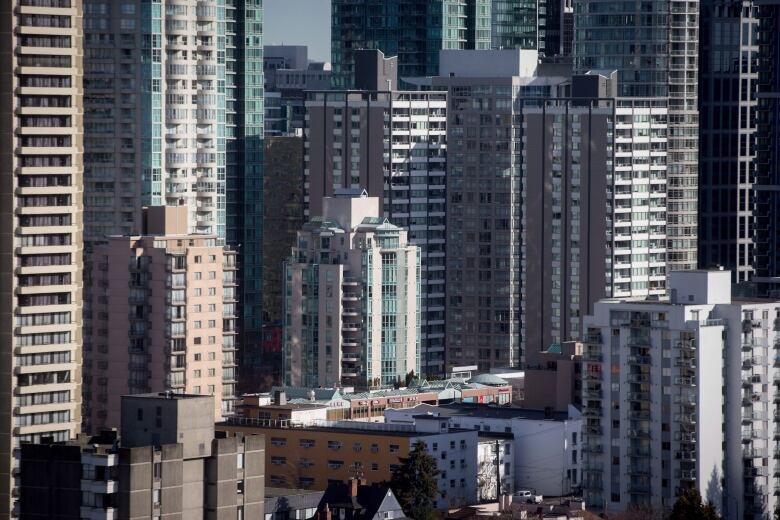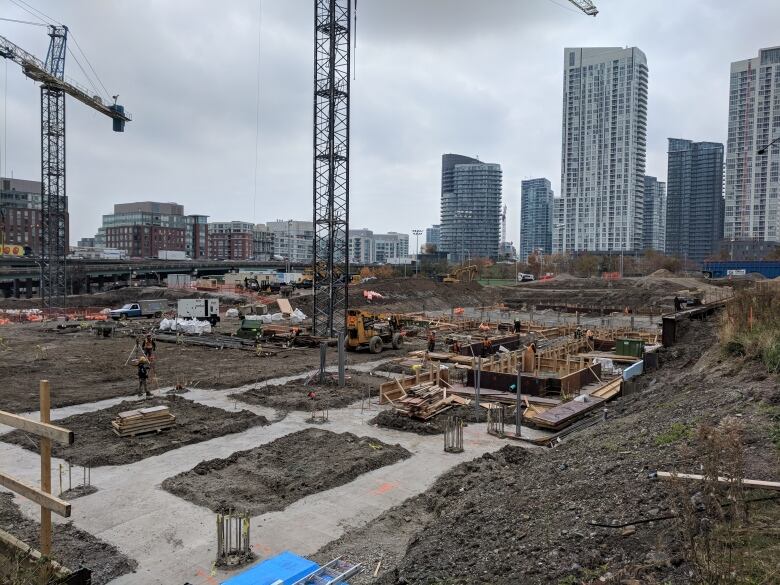Don't expect government meddling in the housing market to fix it: Don Pittis
Free market solutions are no panacea, but fixing the housing market may be impossible

This week, as the federal Liberals rollout their latest plan to fix housing in Canada, they face a Sisyphean task, one they're unlikely to complete.
While the new government strategy makes a welcome political gesture toward solving problems created by the high cost of housing, there is evidence that the problem is bigger, more complicated and more intractable than any government can handle, even with this latest decade-long multi-billion-dollar plan.
Critics were quick to say why the plan was inadequate.
Never enough
"It's never enough," Jeff Morrison, executive director ofthe Canadian Housing and Renewal Association told Peter Armstrong onCBC'sOn The Money.
The criticisms could be grouped into fourgeneral categories. It wasn't enough. It was too late.It didn't do the right things. And it didn't help the right people.
All those critiques may befair. But whatno one, including the federal government, was going to admitwas that solvingthe housing crisis is simply impossible.

The difficulty of the task is sometimes hidden by the simple-sounding solutions offered by criticsincluding in the comment section of any story on the subject many of them contradictory. Open more of Canada's farmland to construction. End immigration. Build more affordable housing. Kick out foreign investors. End all rent controls. Impose more rent controls.

The all-purpose solution proposed by some is for the government to keep its hands off entirely and let the free market do its work. Certainly that would make the job simpler. But for some reason voters don't like the idea of some Canadian families living in cardboard boxes and others in mansions. And the government knows it.
Battling social and economic forces
Yet the market economy continues to rule in the housing sector. And within thematrix of that market economy, the government is battling enormous social and economic forces.
People, rich and poor, from other parts of the country and immigrants from other countries want to live in Canada's biggest cities.
That urge to migrate to the most expensive places is not limited to this time and this place.
Not just a #Canadian problem. Ambitious people want to go where the action is, despite the cost of housing.
https://t.co/KRtT4yPbpm via @FT
—@don_pittisA destination citylike Hong Kong constantly worries thatproperty prices are prohibitive, but a decades-long private and public building boom has failed to build enough and may have encouraged the influx.
Rents continue to soar. New York and San Franciscoand Mexico City face similar fears, and still people come.
Advantages don't go away
"Toronto and other big cities ... have advantages that don't go away just because it gets more and more expensive," Winnipeg economist WayneSimpson once told me when I was researching the impact of rent control.
In Vancouver and Toronto, the construction industry working in high gear hasas yet failed to satisfy demand.

Critics who say the government is doing the wrong thing are probably right as well, since no one really knows how to solve the problem of housing.
As we have seen with the Bank of Canada and interest rates, an effort to stimulate the economy by making money easier to borrow has only served to make houses more expensive.
Similarly, giving tax money to help poorer peoplepay highrents will work through the market economy to bid up the price of rental housing.
Making busy cities more welcoming with lower rents will make them even more dynamic, encouraging the cycle of in-migration.
As we have noted previously, Canada is going through a difficult transition that others have gone through before. There is no longer room for every familyto have its suburban picket fence.
Get used to higher density
Increased housing densityis blocked by people living in single family dwellings they never couldafford to buy. Like elsewhere in the world urban dwellerswill eventually become accustomed to higher-density housing going up next door.
People will become used to living and raising families in smaller spaces. The average for new apartments in Hong Kong is now about 600 square feet (57 sq m).
But that adjustment will take time.
In the near term, the one thing that could solve the Canadian housing crisis is a sudden crash in prices with themuch-predicted popping of the property bubble.
Then the complaint that federal spending plan is too late will become a virtue.
With parts of the spending plan scheduled to start in 2020, the government's new strategy could kill two birdswith one stone, adding to Canada's stock of affordable housing and bailing out a shattered real estate industry adjusting to a new reality.
Follow Don on Twitter @don_pittis
More analysis from Don Pittis












_(720p).jpg)


 OFFICIAL HD MUSIC VIDEO.jpg)
.jpg)



























































































